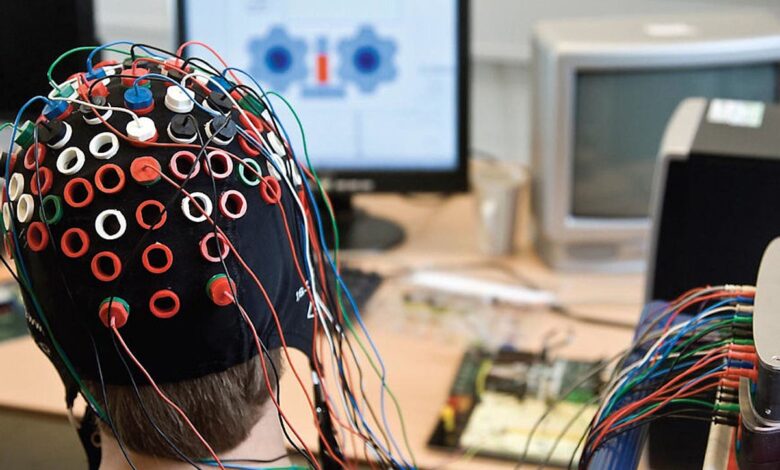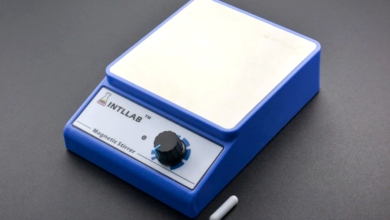EEG Technology – Advancements in Current Diagnostics with AI
Discover advanced EEG technology for precise, real-time brain monitoring. Empowering neuroscience research, diagnostics, and brain-computer interfaces with innovative, portable solutions

AI is revolutionizing healthcare diagnostics by increasing disease detection speed and accuracy. By learning from enormous medical datasets, these technologies can identify trends and abnormalities that the human eye might overlook. Early diagnosis and intervention are very important for illnesses like neurological problems.
Through advanced data analysis techniques, EEG data can be processed to reveal patterns that provide insights into brain health, cognitive states, and mental well-being. Techniques like machine learning and signal processing have further enhanced EEG data analysis, allowing for precise identification of biomarkers and helping clinicians personalize treatment plans. By interpreting these biomarkers, researchers and healthcare providers can advance neurological research, optimize patient care, and make informed therapeutic decisions in real-time. This technology is incorporating AI-powered tools and systems into routine healthcare procedures.
In this article, we will explore the key benefits of EEG Technology, from real-time brain monitoring and early diagnosis of neurological disorders to its role in cognitive research, biofeedback therapy, and brain-computer interfaces.
Read More: Top Automation Tools for Testing Healthcare Applications in 2024
Leading the Way in AI-based Healthcare Solutions
EEG technology is leading the way in AI-based healthcare solutions by utilizing its EEG expertise and dedication to AI and machine learning. To improve clinical trial population stratification and the diagnosis of neurodegenerative disorders like Alzheimer’s, they are working on machine and deep learning models. Watch this space for additional developments!
Advantages of EEG Technology
Here are the advantages of EEG technology:
- Non-Invasive Brain Monitoring: EEG provides a non-invasive way to monitor brain activity, making it a safer option compared to invasive brain mapping methods.
- Real-Time Data Collection: EEG offers real-time insights into brain function, which is valuable for immediate diagnostics and monitoring.
- Early Detection of Neurological Disorders: It helps detect neurological conditions like epilepsy, Alzheimer’s disease, and other brain disorders, allowing for early intervention.
- Enhanced Cognitive Research: EEG is widely used in cognitive and behavioral studies to understand brain functions related to memory, attention, and perception.
- Improved Sleep Studies: EEG is essential in diagnosing sleep disorders such as insomnia, sleep apnea, and narcolepsy by tracking brain wave patterns during sleep.
- Monitoring Brain Development: It helps monitor brain development in infants and children, identifying developmental delays or neurological issues early on.
- Biofeedback Therapy: EEG-based neurofeedback therapy is used to help patients with ADHD, anxiety, and other mental health conditions by training them to control certain brain waves.
- Assists in Surgical Planning: EEG helps map brain function for surgical planning, particularly for epilepsy patients, improving surgical precision.
- Portable and Cost-Effective: Compared to other neuroimaging methods like MRI, EEG systems are more portable, less expensive, and can be used in a variety of settings, including at-home care.
- Brain-Computer Interface Development: EEG plays a crucial role in BCI (Brain-Computer Interface) technology, enabling direct communication between the brain and external devices, with applications in assistive tech for paralyzed individuals.
Why EEG Should Be a Staple in CNS Drug Development
As more drugs are being developed to treat disorders of the central nervous system (CNS), EEG is expected to be a key component in enhancing safety and effectiveness evaluations. By including EEG in clinical trials, researchers and pharmaceutical companies can better understand the effects of medicines by obtaining more reliable data on how brain activity varies in reaction to them.
Read More: What Are The Best Reasons To Become A Mental Health Counselor?
Conclusion
In conclusion, advanced EEG technology offers a cutting-edge approach to brain monitoring and analysis, bringing precision, portability, and cost-effectiveness to neuroscience research and clinical applications. By enabling real-time data acquisition and supporting advanced neurofeedback and brain-computer interface applications, EEG solutions are empowering researchers and clinicians alike to gain deeper insights into brain function and improve patient outcomes. As the technology continues to evolve, the innovation in EEG will play a vital role in advancing neurological diagnostics, treatment, and brain-computer interaction capabilities. As innovations in data processing and analysis continue to expand EEG’s capabilities, this technology promises even greater advancements in personalized treatment, early detection of neurological conditions, and overall brain health monitoring.











